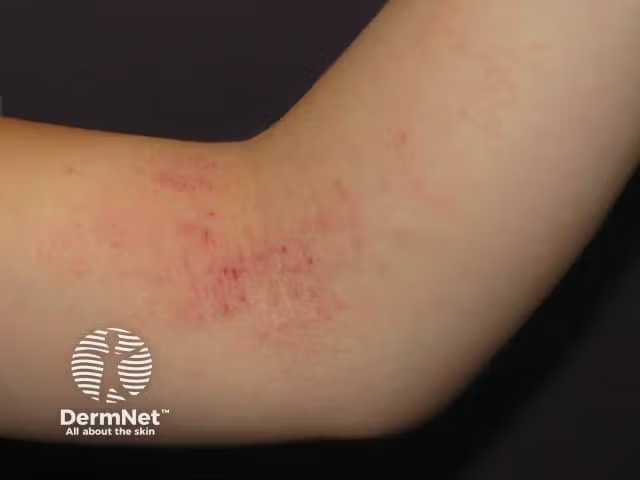- Case-Based Roundtable
- General Dermatology
- Eczema
- Chronic Hand Eczema
- Alopecia
- Aesthetics
- Vitiligo
- COVID-19
- Actinic Keratosis
- Precision Medicine and Biologics
- Rare Disease
- Wound Care
- Rosacea
- Psoriasis
- Psoriatic Arthritis
- Atopic Dermatitis
- Melasma
- NP and PA
- Skin Cancer
- Hidradenitis Suppurativa
- Drug Watch
- Pigmentary Disorders
- Acne
- Pediatric Dermatology
- Practice Management
- Prurigo Nodularis
- Buy-and-Bill
Opinion
Video
Comparing the Landscape of Topicals
Author(s):
Sonya Kenkare, MD, details where ruxolitinib fits within the current landscape of pediatric atopic dermatitis treatments.
This news content has been independently developed and is not endorsed by the American Academy of Dermatology.
In this Dermatology Times Expert Perspectives series, 5 experts delve into the multifaceted aspects of pediatric atopic dermatitis care (AD) including demographic variances to long-term safety and efficacy, comparative analyses, key takeaways from recent research, personalized approaches, and future research directions. Discover clinical insights into the role of ruxolitinib (Opzelura) in addressing critical challenges and enhancing patient outcomes.
In this episode, Sonya Kenkare, MD, dermatologist at Illinois Dermatology Institute in Hinsdale, Illinois, details where ruxolitinib fits within the current landscape of pediatric AD treatments.
Dermatology Times Interview With Sonya Kenkare, MD
Dermatology Times: Considering the latest research findings, how would you differentiate the safety and efficacy profile of ruxolitinib from currently available treatments for pediatric atopic dermatitis? Are there specific patient populations or scenarios where ruxolitinib might offer distinct advantages?
Kenkare: In our pediatric patients, safety is essential and fitting into their lifestyle is also essential because if a kid, and depending on how young the kid may be, the parents are given really complex instructions. They can be difficult to follow. One of the examples of something being easy is ruxolitinib because it only needs to be used once a day to achieve excellent reduction in pruritis and inflammation without giving us the side effects of topical steroids. Ruxolitinib has shown an excellent safety profile in ages all the way down to 2 through adulthood. It has given an excellent return on investment in terms of use of time for reducing pruritis and helping reduce inflammation. Ruxolitinib is excellent, particularly in the little ones with safety data down to the age of 2. We really try to be judicious in our youngest patients with the use of topical steroids. Topical steroids can cause skin thinning and discoloration with long-term use. So while they can be really useful to help in an acute flare, we don't want to continue them long-term, but we do want to sustain continued relief of pruritus and ruxolitinib is excellent for this.
Dermatology Times: Given the most recent research on ruxolitinib, what are the key takeaways that you believe every practicing dermatologist should be aware of? How might this information impact the way dermatologists approach the management of atopic dermatitis in pediatric patients?
Kenkare: I think it's essential that dermatologists are aware that ruxolitinib was shown to reduce pruritus better than the vehicle as soon as 12 hours after the first application. Within 2 days, it reduced the itch score by 4 points, and the vehicle never achieved that level of success. I think having another wonderful non-steroidal anti-inflammatory medication in our toolbox is so helpful, especially one that is so well targeted towards the most problematic symptom of AD, which is which reducing edge helps the body heal reduces inflammation and allows our patients to feel more comfortable, get better sleep, have a higher quality of life and that's what we want for all of our patients.
Transcript edited for clarity






